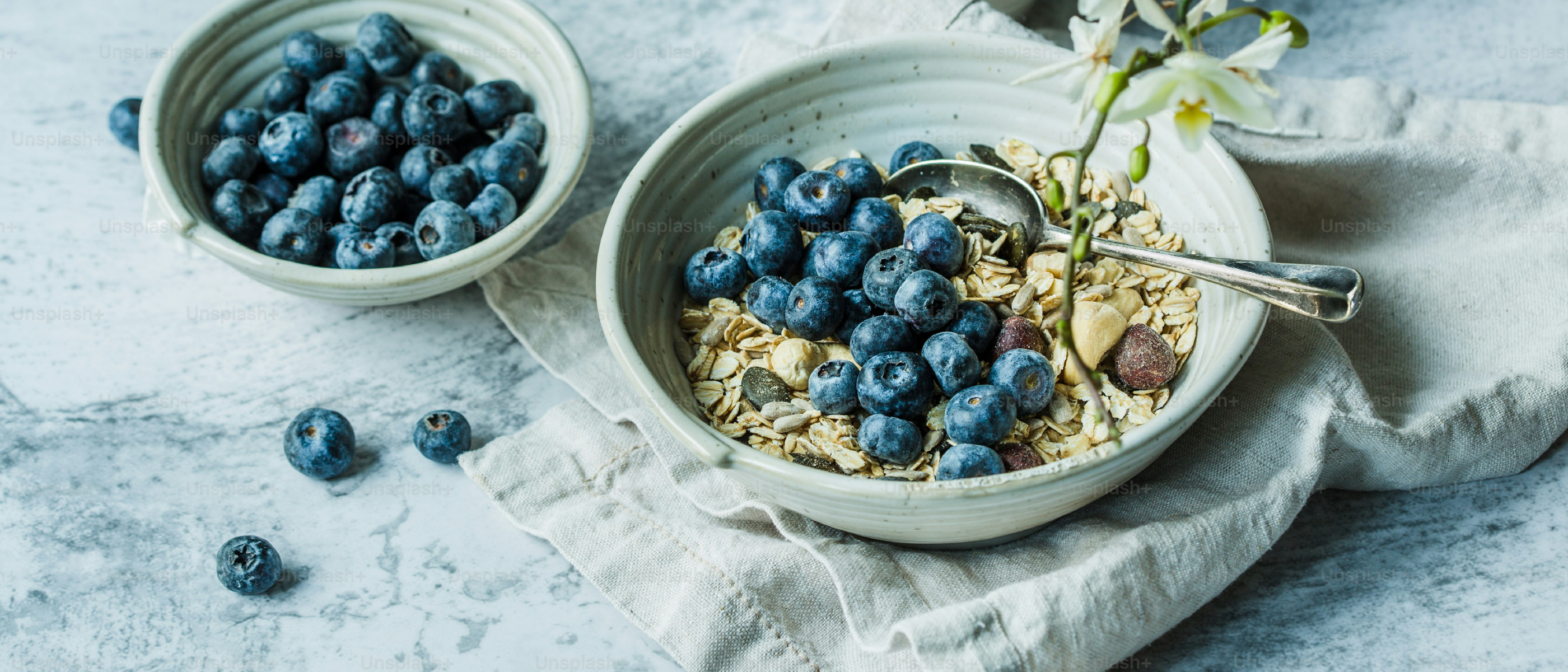What Happens to Your Body When You Eat Blueberry Every Day
Posted on May 2, 2025 • 4 min read • 641 wordsDiscover how daily blueberry consumption enhances cardiovascular function, regulates metabolism, and combats oxidative stress through anthocyanins, with clinical insights on gut microbiome benefits and nutritional analysis.

Blueberries, often hailed as a “superfood,” have gained immense popularity in recent years due to their vibrant color, sweet-tart flavor, and purported health benefits. But what exactly happens to your body when you make blueberries a daily part of your diet? Let’s explore the science-backed effects of regular blueberry consumption, from cardiovascular support to metabolic regulation, using insights from recent research and nutritional data.
1. Cardiovascular Health: Blueberries as a Natural Vascular Protector
One of the most celebrated benefits of daily blueberry consumption lies in its impact on cardiovascular health. A key player here is anthocyanins, the pigmented compounds that give blueberries their deep blue hue. A randomized controlled trial published in The Journals of Gerontology found that anthocyanin metabolites from blueberries may directly mediate vascular benefits, such as improving endothelial function (the ability of blood vessels to dilate) and reducing oxidative stress in blood vessels [1] . Endothelial dysfunction is a precursor to conditions like hypertension and atherosclerosis, so this effect could be critical for long-term heart health.
2. Metabolic Regulation and Weight Management
Contrary to the myth that fruit consumption leads to weight gain, blueberries may actually support metabolic health. A large-scale cohort study in PLoS Medicine tracked over 120,000 participants for up to 24 years and found that increased fruit intake—including blueberries—was associated with modest but consistent weight loss over time [2] . Blueberries are relatively low in calories (232 kcal per 100g) and high in fiber (1.0g per 100g), which promotes satiety and stabilizes blood sugar levels—both key factors in preventing overeating and managing weight.
3. Antioxidant Power: Fighting Oxidative Stress and Aging
Blueberries are among the fruits with the highest antioxidant capacity, thanks to their rich content of anthocyanins, flavonoids, and other polyphenols. Oxidative stress, caused by an imbalance between free radicals and antioxidants in the body, contributes to aging and chronic diseases like cancer and neurodegeneration. A review in Antioxidants noted that natural compounds in blueberries, including anthocyanins, can neutralize free radicals and reduce glycation (a process where sugar molecules damage proteins, contributing to skin aging and tissue stiffness) [3] . While human studies on skin aging are limited, animal and cell-based research suggests that daily blueberry intake could slow visible signs of aging, such as wrinkles.
4. Gut Health: Feeding the Good Bacteria
The fiber in blueberries also acts as a prebiotic, nourishing beneficial gut bacteria. Studies have shown that chronic blueberry consumption can modulate the gut microbiota [4] . A healthy gut microbiome is linked to better immune function, mood regulation, and even cognitive health, making this an underappreciated benefit of daily blueberry intake.
Blueberry Nutrition: Key Nutrients and Daily Needs
To better understand how blueberries fit into a balanced diet, let’s look at their nutrient profile (per 100g of fresh blueberries):
| Nutrient | Amount per 100g | Daily Recommended Intake (Adults) |
|---|---|---|
| Calories | 232 kcal | 2000-2500 kcal (varies by activity level) |
| Protein | 1.8g | 46-56g (varies by gender/weight) |
| Fat | 10.0g | 44-78g (20-35% of total calories) |
| Carbohydrates | 34.9g | 130g (minimum for brain function) |
| Dietary Fiber | 1.0g | 25-30g (for digestive health) |
| Vitamin C | 8.1mg | 75-90 mg |
| Potassium | 86mg | 4700 mg |
Note: Blueberries are particularly rich in vitamin C (not listed above, but ~9.7mg per 100g), which supports immune function, and vitamin K (28.6μg per 100g), important for blood clotting and bone health.
Conclusion: A Daily Dose of Blue for Better Health
Incorporating blueberries into your daily diet can be a simple yet powerful step toward enhancing your health. From protecting your heart to supporting your gut and fighting aging, the science suggests that these tiny berries pack a punch. Of course, moderation is key—while blueberries are nutritious, they should be part of a varied diet rich in other fruits, vegetables, whole grains, and lean proteins. So, next time you reach for a snack, consider a handful of blueberries—your body will thank you!
Sources
-
Rodriguez-Mateos A, Istas G, Boschek L, et al. Circulating Anthocyanin Metabolites Mediate Vascular Benefits of Blueberries: Insights From Randomized Controlled Trials, Metabolomics, and Nutrigenomics. The journals of gerontology. Series A, Biological sciences and medical sciences.(2019). doi:10.1093/gerona/glz047 ↩︎
-
Bertoia ML, Mukamal KJ, Cahill LE, et al. Changes in Intake of Fruits and Vegetables and Weight Change in United States Men and Women Followed for Up to 24 Years: Analysis from Three Prospective Cohort Studies. PLoS medicine.(2015). doi:10.1371/journal.pmed.1001878 ↩︎
-
Choi JY, Ha NG, Lee WJ, et al. Synthetic and Natural Agents Targeting Advanced Glycation End-Products for Skin Anti-Aging: A Comprehensive Review of Experimental and Clinical Studies. Antioxidants (Basel, Switzerland) 14:498.(2025). doi:10.3390/antiox14040498 ↩︎
-
Stull AJ, Cassidy A, Djousse L, et al. The state of the science on the health benefits of blueberries: a perspective. (2024). doi:10.3389/fnut.2024.1415737 ↩︎